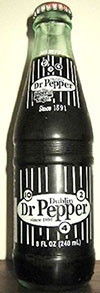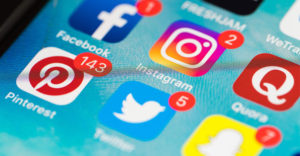
I just came back from Dell’s financial analyst meeting, and the firm is doing amazingly well. That wasn’t the way it was a few years ago when folks were calling for a shakeup at the top. Michael Dell, along with an excellent team, turned the firm around, and he kind of did it by channeling Steve Jobs.
Last week, Steve Ballmer had to respond to calls for his ouster by arguing that no one matches his energy or conviction. Agreed — but clearly folks are questioning the quality of the job he is doing.
The week ended with the release of a memo to RIM’s management from a RIM employee that could have been written by Steve Jobs himself, given the content highlights much of what Steve did at Apple.
Microsoft is in far better shape than RIM, but both firms should take a look at Apple and Dell. Michael Dell basically did what the RIM letter suggests — and Apple initially exemplified — with few unique Dell twists. The company went from being under fire to being on fire. This column is focused on both Microsoft and RIM’s executive team and their employees, but it is a cautionary note for a number of other firms that are in trouble or soon will be.
I’ll close with my product of the week: Dublin Dr. Pepper — the best tasting Dr. Pepper in the world that, ironically, Dr. Pepper Snapple is trying to kill. (I feel a boycott coming on.) This will have a touch of 4th of July freedom in it.
Dell and Apple: The Magic Formula
After trying to be everything to everyone, Apple brought back Steve Jobs to focus the company. The formula that Steve Jobs applied at Apple is text book excellence. He took a look at what Apple had become, and it was a mess of conflicting efforts and poorly funded projects. He cut it back to the core areas where he wanted to focus. He then decided who his customers were going to be and focused that reduced set of products on them.
He entrusted those products and efforts to the best people he could find and then personally assured the success of the result. Finally, he gave a substantial marketing budget to people who could execute a strong marketing plan. He turned them into a team rather than the usual set of constantly bickering executives fighting over turf. (He minimized the infighting anyway). The most unique thing he created — something that now really defines Apple — is the Apple Store, which is likely the best brick-and-mortar retail operation in the world.
Dell, which had been trying unsuccessfully to be everything to everyone, bought back its founder Michael Dell. Dell applied a similar formula — tightening the company’s focus onto projects that could be managed, and cutting back the company’s reach to core customer areas.
He entrusted these efforts to the best people he could find, and he personally assured the success of the result. Finally, he committed to a substantial sales effort, with sales people and technical specialists who could move product. He then transformed them into a team rather than the normal bickering bunch that most CEOs have to deal with.
The most unique thing he created is an acquisition process that doesn’t destroy acquired companies but manages them to success — arguably the best acquisition process in the world, based on the results.
At the Core of Dell’s and Apple’s Success
What both Steve and Michael did was very painful and incredibly difficult, but the end result is companies both men are now very proud of — and no one is calling for their heads on a platter. Microsoft’s and RIM’s CEOs are hardly slackers — they are working very hard. They just aren’t working very smart, and their longevity is currently tied more to who they are — founders — than the job they are doing.
Steve Jobs has been where they are now, and he got fired. Michael Dell had to come back from retirement to fix his company, and he had to fire his replacement to do so. For Steve, I think getting fired forced him to perform at a much higher and more focused level. For Michael Dell, the thought that the company he founded might fail did the same. Both men were changed by these close calls — experiences not shared by RIM’s and particularly Microsoft’s management.
RIM’s Peanut Butter Memo
RIM’s employee memo is very similar to the peanut butter memo. Several of us have thought both could be applied to Yahoo, Microsoft, RIM, Sony and a number of other companies.
In fact, after the Yahoo piece came out, Mini-Microsoft, the unauthorized Microsoft employee blog, tied it to Microsoft’s own management practices at the time. Both RIM and Microsoft started out providing a very powerful end-user focused set of products, and both lost their way with an excessive focus on enterprise buyers.
Dell sells to enterprises, but it doesn’t focus on them heavily and has pretty much ignored IT — and employees bring products into enterprises (Cisco has 7,000 Macs, for instance).
Both Microsoft and RIM (I could add Google here as well) have a history of bringing out incomplete products that are starved for resources.
On the path RIM is on, it will likely fail. At its current rate of failure, Microsoft goes under about the same time the world ends (the company is growing people) — but Steve Ballmer will likely go down in history as a failed CEO. (Were I Steve, that’d matter to me.) The companies’ leaders need to figure out who their customers really are, focus on those customers, and bring out great products that exemplify RIM and Microsoft’s strengths — and not try to copy Apple or IBM.
Wrapping Up: RIM and Microsoft’s Executives and Employees
It is my view that both Microsoft and RIM have lost track of who their customers really are. Microsoft, in particular, has become too complex to manage effectively. A lot of the problem for both companies is that their CEOs are getting little internal support (reminding me of Akers at IBM and Fiorina at HP). A CEO isn’t the company, and you have only to look at Yahoo to realize that a CEO replacement is a gamble at best.
In the end, both RIM and Microsoft need to go down the path blazed by Apple and Dell to get back to success. Create a vision, simplify around that vision, find the best people to execute the vision, form them into a team, and focus it like a laser on those critical key customers who share that unique vision while ensuring adequate sales and marketing support for it.
To the CEOs: It can be done. Apple and Dell have done it, and you’ll play this mistake in your heads for the rest of your lives if you fail. To the Microsoft and RIM employees: Support your CEO or get out. You’re part of the problem — become part of the solution. You all have the freedom to succeed or fail, but failure shouldn’t be an option. You’re a team. Start acting like it.
In short, you don’t have to build a better iPod, iPhone, or iPad — you have to build a better Microsoft and RIM. If you do that, you’ll get products that are uniquely yours and have the potential to eclipse Apple’s.
Product of the Week: Dublin Dr. Pepper
 I first became a Dr. Pepper fan when I was about six, and my grandfather gave it to me. I thought I’d died and gone to heaven. Since then, virtually all of the soda industries got excessively focused on cost and cheapened the formulas, shifting from pure cane sugar to corn syrup (which is really unhealthy).
I first became a Dr. Pepper fan when I was about six, and my grandfather gave it to me. I thought I’d died and gone to heaven. Since then, virtually all of the soda industries got excessively focused on cost and cheapened the formulas, shifting from pure cane sugar to corn syrup (which is really unhealthy).

The one Dr. Pepper bottler that didn’t was in Dublin, Texas, and I have bottles and cans shipped to me on a regular basis. Well apparently the parent company isn’t happy with the fact that there are a lot of us who like the original formula and are willing to pay a lot of money to get it shipped to us. So they — and this is really stupid — started suing Dublin Dr. Pepper to stop it from shipping its product out to folks like you and me who don’t live in Dublin, Texas, but think that drinking stuff that is really bad for us is stupid.
The 4th of July is about freedom, and we should be able to buy the soda we want to drink regardless of what some ass in some corporate office thinks. Seriously, right before the 4th of July, these unmitigated jerks are going to try to take away yet one more thing that makes life pleasurable and force us to drink something that is far less healthy? I don’t think so.
So Dublin Dr. Pepper is my product of the week — and I hope you’ll stand with me in boycotting Dr. Pepper and Snapple if they force Dublin Dr. Pepper to stop shipping its products to the thousands of folks who love the taste of true Dr. Pepper. Freedom!!!!






















































I don’t see how Dell is anything like Apple: they make cheap pc’s for the windows market, abandon Linux at the first opportunity, and have decent sales of pc’s servers and networking gear to the enterprise market but only their pc’s have made a dent in the consumer space. Versus Apple, who have explosive profits due to (overcharging for) their innovative, attractively-designed, market-leading notebooks and (extremely) overpriced desktop computers. Apple’s phones and music players and tablets dominate in the marketplace; do you know anyone with a Dell Streak?
Since Michael Dell challenged Apple to sell their stock back to their customers, Apple has turned around to be a dominant player in consumer electronics, including some middling share of computer sales (bigger than HP, the largest pc seller, and thus bigger than Dell). Meanwhile Dell’s stock has not shot up over $350 – it’s currently $16.65. So your comparison doesn’t hold up at all.
I don’t see how can anybody praised STEVE JOBS. They are both Steve J. & Steve W are big thieves. They stole ideas from the originals such as XEROX PARC’S.